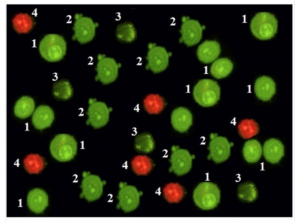 Authors of a 2018 paper have retracted it after discovering “the conclusions in the article cannot be relied upon.”
Authors of a 2018 paper have retracted it after discovering “the conclusions in the article cannot be relied upon.”
The journal, PeerJ, wasted no time. Less than a week after the paper was published, the journal issued an expression of concern to alert readers to the issue and to the forthcoming retraction notice, which appeared five days later, on January 23.
Journals can take months, even years, to retract a paper. In this case, the time from publication to retraction was 11 days. The records, best we can tell, are 48 hours and 80 years.
PeerJ is typically associated with preprints—which the journal defines as “a draft that has not yet been peer reviewed for formal publication”—but the 2018 paper was never a preprint, the publisher said. The paper was peer reviewed, after the authors submitted it last October.
So, what prompted such a speedy retraction? Continue reading Six days after publication, paper is flagged. By day 11, it’s retracted.

